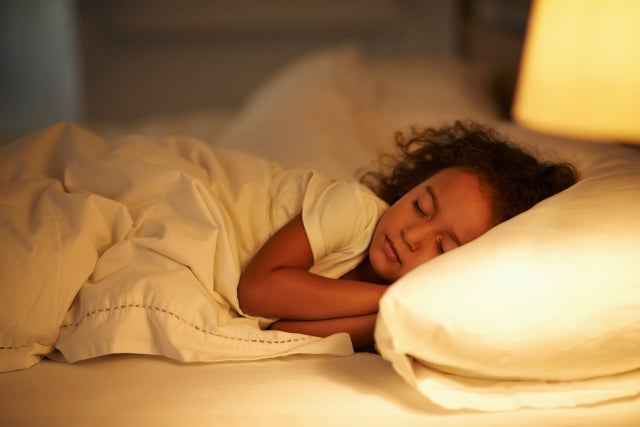Sleep disorders: What they are, how to assess them and what to do

by Dr. Reut Gruber
This is the second article in our series with Dr. Reut Gruber about sleep. To read the first one, see p. 17 of the Spring/Summer 2023 edition, “Sleep for success.”
Sleep disorders are conditions that interrupt and degrade sleep and are common in children and teens. Younger children with a sleep disorder may seem overactive and irritable rather than sleepy. Adolescents who are excessively sleepy might look and feel depressed or anxious. It’s important to examine the extent to which unhealthy sleep may contribute, exacerbate or even cause daytime challenges such as hyperactivity, inattention, low mood.
How can you tell if your child suffers from a sleep disorder?
Here are some questions you can ask yourself:
- Does your child have a hard time staying awake, even if they slept through the night?
- Does your child doze off when they are inactive but should be staying awake? For example, while watching a movie?
- Is your child’s mood low, but you don’t know why?
- Is your child irritable and reactive for no apparent reason?
- Is your child forgetful or has difficulty focusing?
- Does your child snore most nights?
These are all possible signs of an undiagnosed sleep disorder.
Sleep disorder can mimic the symptoms of other disorders, like depression, attention-deficit hyperactivity disorder (ADHD) or a cognitive decline, and therefore may be difficult to diagnose. If these challenges sound familiar and you don’t know what’s causing them, you may want to consider having your child’s sleep assessed.
Common sleep disorders
These include:
- Insomnia: difficulty falling asleep or staying asleep throughout the night combined with daytime impairments.
- Circadian rhythm sleep disorders: problems with the brain’s biological clock.
- Sleep apnea: a medical condition in which a person stops and starts breathing repeatedly throughout the night.
- Restless legs syndrome: a condition that causes an uncontrollable urge to move the legs because of an uncomfortable sensation.
- Narcolepsy: a neurological condition characterized by sudden attacks of sleep during the day and overwhelming daytime drowsiness, even though the person is getting enough sleep at night.
Diagnosing sleep disorders
Different sleep disorders require different evaluation methods and treatments. Suspected sleep apnea or narcolepsy should be assessed in a sleep clinic. A sleep specialist will review the patient’s symptoms and ask them to undergo a sleep study (called polysomnography). The study records data about brain wave changes, eye movements, breathing patterns, blood pressure, heart rate and rhythm, and leg movements.
Insomnia and biological clock issues should be assessed by a behavioural sleep specialist who will take a detailed history of the problem and monitor the patient’s sleep for about two weeks. This could involve using a sleep diary and a sleep watch that objectively records bedtime, wake-up time and the amount of time it takes to fall asleep.
How are sleep disorders treated?
Sleep disorders like insomnia can be resolved by changing specific behaviours and thoughts. Treatment involves counseling and education and, in some cases, lifestyle changes.
Some sleep disorders require medical care such as medication (for example, narcolepsy) or sleep-specific devices or, in some cases, surgery (sleep apnea). These general approaches apply to children and adolescents with or without additional challenges such as intellectual disability, ADHD or autism spectrum disorder.
Who is (and isn’t) qualified to help diagnose and treat sleep disorders?
- Various healthcare providers can help address sleep problems, including:
- Sleep physicians: medical doctors who are trained in sleep medicine and are licensed to practice by a medical board.
- Family physicians, general physicians, pediatricians and psychiatrists. Licensure for this practice is provided by a medical board.
- Clinical psychologists: some (but not all) of these mental health experts have expertise in behavioural interventions for sleep disorders. They must be fully licensed to practice independently.
It’s important to note that certifications from institutes or organizations that aren’t part of a professional association usually aren’t regulated. Some people who offer services for evaluation or treatment of sleep disorders, like sleep coaches or consultants, might not hold a professional license to practice as a health care provider. For more information, please visit The Society of Behavioral Sleep Medicine’s position statement on sleep coaching.
How can you help your child improve their sleep?
It’s always helpful to practice healthy sleep habits.
- Follow a consistent sleep and wake schedule.
- Engage in moderate to vigorous exercise during the day for a good sleep.
- Decrease emotional stimulation before bed.
- Disengage and calm down.
If you’re concerned about yourself or a family member’s sleep, consult a primary care provider or a sleep expert so they can provide you with the support you need.
Reut Gruber is a scientist, licensed psychologist and sleep expert. She is a full professor in the department of psychiatry at McGill University; director of the Attention, Behaviour and Sleep Lab at the Douglas Mental Health University Institute; and diplomate of the American Academy of Cognitive Therapy.









